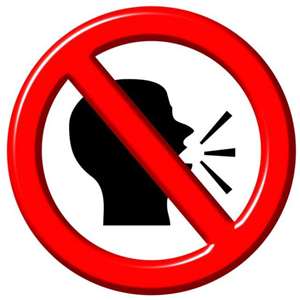
The ABA is again considering whether to adopt a model rule of professional conduct prohibiting a lawyer from engaging in harassment or discrimination based on various human conditions. See ABA Standing Committee on Ethics and Professional Responsibility, Working Discussion Draft on Revisions to Model Rule 8.4 (Jul. 16, 2015). The current working draft of the amendment provides as follows:
Rule 8.4, Misconduct.
It is professional misconduct for a lawyer to: . . . (g) knowingly harass or discriminate against persons, on the basis of race, sex, religion, national origin, ethnicity, disability, age, sexual orientation, gender identity, marital status or socioeconomic status, while engaged [in conduct related to] [in] the practice of law.
Id. at 2. A proposed comment to accompany this rule would provide as follows:
Conduct that violates paragraph (g) undermines confidence in the legal profession and our legal system and is contrary to the fundamental principle that all people are created equal. A lawyer may not engage in such conduct through the acts of another. See Rule 8.4(a). Legitimate advocacy respecting any of these factors when they are at issue in a representation does not violate paragraph (g). It is not a violation of paragraph (g) for lawyers to limit their practices to clients from underserved populations as defined by any of these factors, or for lawyers to decline to represent clients who cannot pay for their services. A trial judge’s finding that preemptory challenges were exercised on a discriminatory basis does not alone establish a violation of paragraph (g). Paragraph (g) incorporates by reference relevant holdings by applicable courts and administrative agencies.
Id. The Standing Committee on Ethics and Professional Responsibility will have a roundtable discussion on this proposal on Friday, July 31, at 5:30 PM at the Chicago Marriott Downtown, 540 N. Michigan Ave. Kane Room, 3rd Floor.
ABA’s Past Rule Making
By way of history, in the mid-1990s, various ABA committees proposed and withdrew amendments to ABA Model Rule 8.4 to address the issue. For example, in 1994, the ABA Standing Committee on Ethics and Professional Responsibility proposed and later withdrew an amendment prohibiting a lawyer from manifesting “by words or conduct, in the course of representing a client, bias or prejudice based upon race, sex, religion, national origin, disability, age, sexual orientation or socio-economic status.” See ABA Center for Professional Responsibility, A Legislative History: The Development of the ABA Model Rules of Professional Conduct 1982-2013 at 855 (2013). In the same year, the ABA Young Lawyers Division proposed and later withdrew an amendment prohibiting a lawyer from committing “a discriminatory act prohibited by law or to harass a person on the basis of sex, race, age, creed, religion, color, national origin, disability, sexual orientation or marital status, where the act of discrimination or harassment is committed in connection with the lawyer’s professional activities.” See id. at 854. Finally, in 1998, The ABA Criminal Justice Section proposed and later withdrew an amendment prohibiting a lawyer from committing in the course of representation “any verbal or physical discriminatory act, on account of race, ethnicity or gender, if intended to abuse litigants, jurors, witnesses, court personnel, opposing counsel or other lawyers, or to gain a tactical advantage.” See id. at 857.
Ultimately, the ABA in 1998 addressed offensive lawyer “words or conduct” manifesting “bias or prejudice” through amending the comments to current Model Rule 8.4 rather than the black-letter rule. That comment currently provides as follows:
[3] A lawyer who, in the course of representing a client, knowingly manifests by words or conduct, bias or prejudice based upon race, sex, religion, national origin, disability, age, sexual orientation or socioeconomic status, violates paragraph (d) when such actions are prejudicial to the administration of justice. Legitimate advocacy respecting the foregoing factors does not violate paragraph (d). A trial judge’s finding that peremptory challenges were exercised on a discriminatory basis does not alone establish a violation of this rule.
Some states have incorporated language from either the failed ABA proposals or the current comment into their versions of Rule 8.4. Minnesota, for example, prohibits a lawyer from harassing “a person on the basis of sex, race, age, creed, religion, color, national origin, disability, sexual orientation, or marital status in connection with the lawyer’s professional activities.” See Mn. Rules of Prof’l Cond. R. 8.4(g); In re Woroby, 779 N.W.2d 825 (Min. 2010) (finding misconduct arising out of harassment on the basis of religion). Indiana prohibits a lawyer from engaging “in conduct, in a professional capacity, manifesting, by words or conduct, bias or prejudice based upon race, gender, religion, national origin, disability, sexual orientation, age, socioeconomic status, or similar factors” but notes that “[l]egitimate advocacy respecting the foregoing factors does not violate this subsection,” nor does “[a] trial judge’s finding that preemptory challenges were exercised on a discriminatory basis . . . .” See Ind. Rules of Prof’l Cond. R. 8.4(g); In re Barker, 55S00-1008-DI-429 (Ind. Sep. 6, 2013) (suspending lawyer for 30 days for calling a party “an illegal alien”). Colorado, Florida, Ohio, Michigan, and Rhode Island have likewise adopted similar rules. See Co. Rules of Prof’l Cond. R. 8.4(g); Fl. Rules of Prof’l Cond. R. 4-8.4(d); Ohio Rules of Prof’l Cond. R. 8.4(g); Mich. Rules of Prof’l Cond. R. 6.5(a); R.I. Rules of Prof’l Cond. R. 8.4(d).
Louisiana
Louisiana has no disciplinary rule, comment or other authority prohibiting the use of racially-offense language by a lawyer, or expressly prohibiting harassment or discrimination based on specified conditions.
